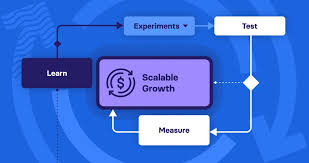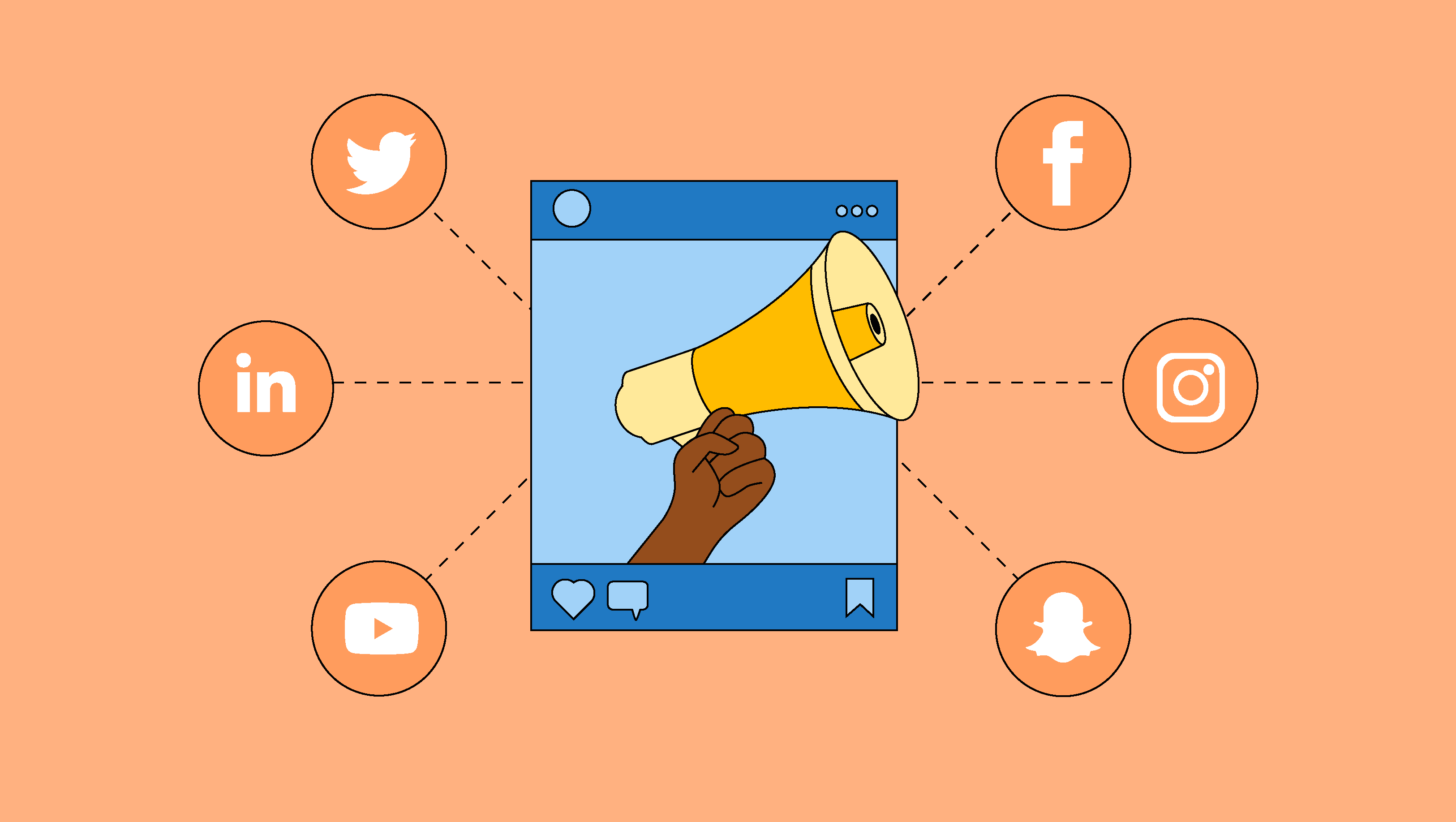The Impact of Startup Marketing Campaigns on Your Business
These five startup marketing campaigns exemplify the creativity, innovation, and strategic thinking that can drive a startup from obscurity to prominence. Each campaign took a unique approach, whether through emotional storytelling, viral videos, transparent roadmaps, immersive experiences, or user-driven growth.
As the startup landscape continues to evolve, these campaigns serve as inspiring case studies for aspiring entrepreneurs and marketers aiming to create lasting impacts in the business world.
Airbnb’s “Is Mankind?” Campaign: When Airbnb burst onto the scene, they faced a unique challenge – convincing people to open their homes to strangers. The “Is Mankind?” campaign in 2015 struck an emotional chord, focusing on the idea that people are inherently good.
The campaign combined heartwarming stories of hosts and guests with powerful visuals, reassuring potential users that the world is a better place when we connect and share. This resonated deeply, effectively fostering trust and community within Airbnb’s ecosystem.
Dollar Shave Club’s Viral Video: In 2012, Dollar Shave Club disrupted the shaving industry with a humorous and memorable viral video. The company’s founder, Michael Dubin, starred in the video that humorously highlighted the absurdities of buying expensive razors.
The video’s witty script and Dubin’s charismatic delivery created an instant connection with viewers, leading to over 12,000 sign-ups within the first two days of the video’s release. This campaign showcased the power of authenticity, humor, and relatability in capturing an audience’s attention.
Tesla’s Secret Master Plan: Elon Musk is known for his unconventional approach to marketing, and Tesla’s “Secret Master Plan” is a prime example. In 2006, Musk released a blog post outlining Tesla’s long-term vision, including their goal to create an affordable electric car.
By sharing this roadmap publicly, Musk created a sense of anticipation and involvement among Tesla’s supporters. This unique transparency and commitment to a sustainable future not only attracted loyal fans but also steered conversations around electric vehicles.
Casper’s Subway Snooze Experience: Casper, a mattress startup, aimed to revolutionize an industry that had seen little change for decades. In 2015, they devised a campaign that allowed tired New Yorkers to take a 15-minute nap in a cozy subway nook outfitted with Casper mattresses.
This immersive experience not only offered a break for weary commuters but also showcased the comfort and quality of Casper mattresses. The campaign cleverly merged the offline and online worlds by encouraging visitors to share their nap experiences on social media, driving brand awareness and engagement.
Slack’s Word-of-Mouth Growth: Slack’s meteoric rise from an unknown startup to a communication powerhouse is a testament to the power of word-of-mouth. By focusing on creating a product that people genuinely loved using, Slack encouraged organic growth as satisfied users recommended the tool to their colleagues and friends.
Slack’s clever integrations with other popular tools further facilitated its spread across teams and organizations. This campaign highlighted the significance of delivering exceptional user experiences that naturally generate referrals.
In the fast-paced world of startups, the right marketing campaign can often be the difference between obscurity and success. Over the years, several innovative startups have risen to prominence, not just because of their groundbreaking products or services, but due to their exceptional marketing strategies.
Read Also: The Impact of CPA Tax Preparation on Your Finances
Startup Marketing Campaign Ideas

Launching a startup is an exciting journey, but navigating the complex landscape of marketing can be challenging. A well-executed marketing campaign can make all the difference in capturing your target audience’s attention and driving business growth.
User-Generated Content Contests: Encourage your customers to create content related to your product or service, such as photos, videos, or reviews. Host a contest that rewards the most creative submissions, creating a sense of community engagement and amplifying your brand’s reach.
Interactive Webinars or Workshops: Position your startup as an industry expert by hosting interactive webinars or workshops. Provide valuable insights, actionable tips, and engage participants in real-time. This approach not only showcases your expertise but also helps build a loyal audience.
Personalized Email Journeys: Implement an advanced email marketing strategy that sends personalized content to subscribers based on their preferences, behavior, and interactions. Tailoring messages to individual needs can significantly enhance customer engagement and conversions.
Augmented Reality (AR) Experiences: Leverage AR technology to create immersive experiences related to your product. This could include allowing customers to visualize how your product fits into their lives or even offering a virtual try-before-you-buy option.
Micro-Influencer Collaborations: Partner with micro-influencers who have a smaller but highly engaged following in your niche. Their authentic recommendations can carry more weight and generate better results compared to traditional influencers with larger but less engaged audiences.
Flash Mobs or Guerrilla Marketing: Create memorable and unexpected moments in public spaces through flash mobs or guerrilla marketing tactics. These attention-grabbing activities can create a buzz and generate word-of-mouth marketing.
Limited Edition Product Launches: Introduce limited edition versions of your products or services to create a sense of urgency and exclusivity. This approach can encourage quicker decision-making and drive sales.
Social Impact Campaigns: Align your startup with a social cause that resonates with your target audience. Launch campaigns that focus on giving back, promoting sustainability, or supporting a charitable organization. This not only demonstrates your company’s values but also connects emotionally with customers.
Virtual Reality (VR) Experiences: For startups in certain industries, offering virtual reality experiences can be a game-changer. From virtual property tours for real estate startups to immersive product demonstrations, VR can help potential customers experience your offering in a whole new way.
In a competitive startup landscape, standing out requires creativity, innovation, and a willingness to push boundaries. Implementing unique marketing campaign ideas can help your startup make a memorable impression, build brand loyalty, and drive business growth.
Consider the nature of your product, your target audience, and your brand identity when choosing the strategies that align best with your startup’s goals. By embracing these innovative approaches, you can position your startup for success in an ever-evolving marketplace.
Startup Marketing Campaign Metrics
In the intricate dance of startup marketing, metrics serve as both choreographer and mirror. They guide every move, reflecting successes, challenges, and opportunities.
By understanding and interpreting these metrics, startups can elevate their marketing campaigns from mere initiatives to transformative journeys towards growth and success. This is where the significance of startup marketing campaign metrics comes into play.
Defining the Landscape: Startups, often equipped with limited resources and tight budgets, need to make every marketing effort count. Enter metrics, the data-driven tools that offer a compass to navigate the vast sea of marketing possibilities.
However, metrics are not just about counting likes or shares; they’re about understanding audience behavior, engagement patterns, and ultimately, the return on investment.
Beyond the Vanity: It’s tempting to be swayed by vanity metrics, those easily quantifiable numbers that might inflate one’s ego, like social media likes or page views. But savvy startups look deeper.
They delve into metrics that reveal engagement, such as click-through rates, time spent on page, and conversion rates. These metrics provide valuable insights into audience interest and the effectiveness of messaging.
The Conversion Conundrum: The ultimate goal of any marketing campaign is to convert interest into action. This might involve signing up for a newsletter, making a purchase, or requesting a demo.
Conversion metrics lay bare the effectiveness of a campaign’s call-to-action. Startups keen on optimizing their marketing efforts constantly analyze conversion rates, tweaking elements like landing pages, forms, and incentives to maximize results.
Unearthing User Acquisition: Startups are perpetually on the hunt for new users or customers. User acquisition metrics spotlight the origins of these newcomers, whether from social media, paid advertising, referrals, or organic search. By understanding where their audience comes from, startups can allocate resources to the most effective channels and tailor their messaging accordingly.
Engagement Echoes Louder: Engagement metrics paint a vivid picture of how audiences interact with a startup’s content. Metrics such as comments, shares, and retweets reflect the resonance of the campaign’s message. Startups that closely monitor these interactions can adapt their strategies in real time, amplifying what works and mitigating what falls flat.
Chasing Churn Away: Customer retention is the bedrock of sustainable growth. Churn metrics representing the rate at which customers abandon a product or service, act as a warning bell. They signal that it’s time for startups to dig into the reasons behind attrition, refine their offerings, and nurture customer relationships.
Return on Investment (ROI) Realities: A marketing campaign’s success hinges on its ROI. Startups must scrutinize metrics that reveal how much revenue a campaign generates relative to its cost. By accurately calculating ROI, startups can decide where to invest further and where to pivot. It’s a compass that guides resource allocation in a resource-scarce environment.
The Metrics Melange: Startup marketing campaigns are rarely a one dimensional endeavor. Metrics should be analyzed holistically, providing a comprehensive view of campaign performance. For instance, a high conversion rate might indicate effective targeting, but a low engagement rate could hint at misaligned messaging.
Tech Tools and Dashboards: In the digital age, startups have a wealth of tools at their disposal to track and interpret metrics. From Google Analytics to social media insights, startups can harness data to make informed decisions. Customizable dashboards offer real-time updates, empowering startups to pivot swiftly based on campaign performance.
Embracing the Learning Curve: While metrics provide invaluable guidance, startup marketing is not a linear process. It’s a journey of experimentation, learning, and adaptation. Metrics lay the foundation, but the human element, creativity, agility, and strategic thinking, drives startup marketing campaigns to truly stand out.
In the ever-evolving landscape of startups, crafting an effective marketing campaign is akin to assembling the pieces of a complex puzzle. Yet, unlike a static jigsaw, a startup’s marketing journey requires constant monitoring and fine-tuning to ensure success.
Read Also: How to Find Investors to Start a Small Business
Startup Marketing Campaign Strategies

Effective marketing campaigns are the lifeblood of startup success. By embracing unique strategies that prioritize engagement, authenticity, and personalization, startups can cut through the noise and establish meaningful connections with their target audience.
Whether through purpose-driven initiatives, user-generated content, or immersive experiences, startups have a wealth of innovative options to explore in their pursuit of growth.
Storytelling with Purpose: Storytelling goes beyond mere advertising; it’s about creating an emotional connection with your audience. Startups can weave their brand’s journey, challenges, and triumphs into compelling narratives. These stories resonate with customers on a personal level, making the brand more relatable and memorable.
User-Generated Content (UGC) Showcases: Leveraging user-generated content is a powerful strategy to foster community engagement and trust. Encourage customers to share their experiences with your product or service through photos, videos, or testimonials. Reposting this content on your platforms not only boosts credibility but also shows appreciation for your customers.
Interactive Content Experiences: Interactive content, such as quizzes, polls, and contests, can captivate the audience’s attention and encourage participation. These experiences provide valuable insights into customer preferences while keeping them engaged and entertained.
Micro-Influencer Collaborations: Instead of targeting high-profile influencers, startups can collaborate with micro-influencers who have a smaller but highly engaged audience within their niche. These influencers often have more authentic relationships with their followers, leading to higher conversion rates.
Purpose-Driven Marketing: Modern consumers appreciate brands that stand for more than just profits. Startups that align themselves with social or environmental causes can connect with like-minded customers who share their values. Incorporating purpose-driven initiatives into your campaigns can foster a loyal customer base.
Gamification Techniques: Gamification injects an element of fun and competition into marketing campaigns. By incorporating challenges, rewards, and leaderboards, startups can increase customer engagement, drive brand awareness, and encourage repeat interactions.
Personalized Experiences: Data-driven insights allow startups to tailor their marketing campaigns to individual preferences. Personalized emails, product recommendations, and exclusive offers make customers feel valued and understood, ultimately boosting conversion rates.
Immersive Visual Content: Visual content, such as videos, live streams, and virtual reality experiences, can create a deeper connection with the audience. Startups can use these mediums to showcase their products in action, share behind-the-scenes glimpses, or host interactive events.
Limited-Time Offers with Urgency: Creating a sense of urgency through limited-time offers or exclusive deals can drive immediate action from potential customers. The fear of missing out (FOMO) often motivates individuals to make a purchase decision sooner rather than later.
Cross-Platform Consistency: Maintaining consistent messaging and branding across all marketing channels is crucial. Startups should ensure that their campaigns seamlessly transition from social media to email marketing, website design, and any other touchpoints, providing a unified brand experience.
In the competitive landscape of today’s business world, startups face numerous challenges as they strive to establish their presence and attract customers. A well-executed marketing campaign can be the driving force behind a startup’s success, helping it break through the noise and connect with its target audience.
Read Also: Everything You Need To Know About DIY Projects




